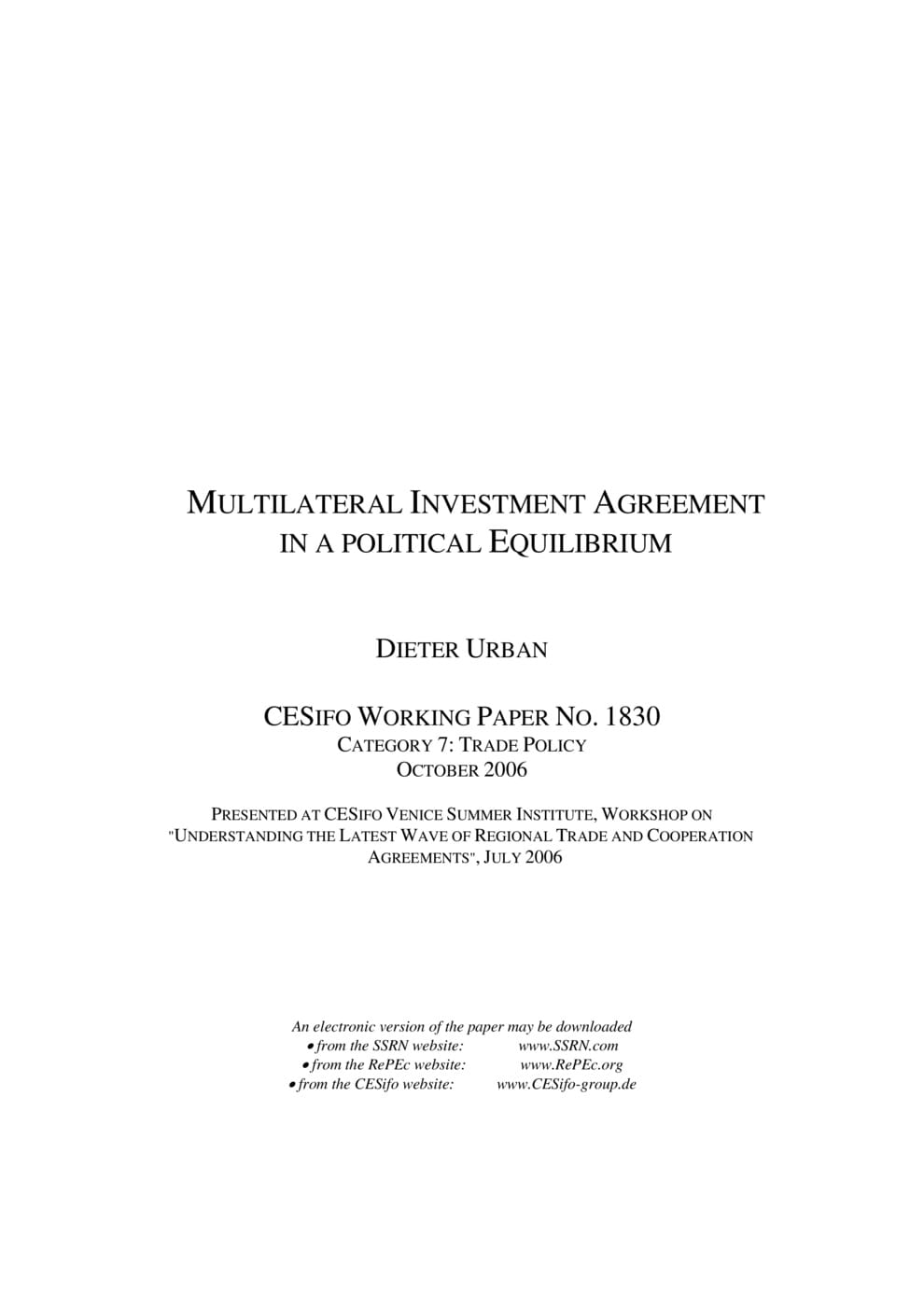Multilateral Investment Agreement in a Political Equilibrium
CESifo, Munich, 2006
CESifo Working Paper No. 1830

This study provides a theoretical explanation, first, as to why some less-developed countries (LDCs) have complained about the OECD negotiations of a multilateral investment agreement (MAI) in 1998 although they were free to join or opt out. Second, it explains why we observe instead an explosion of bilateral investment treaties (BITs). The explanation rests on an FDI model with three distortions: there is a time-inconsistency problem of extracting rents from FDI, there is an underprovision of public goods in LDCs, and there is a lobbying distortion in political decision making that is initially unobservable to foreign investors which causes political risk. The negotiation of MAI by a club exerts a negative information externality on non-members. A regime of BITs undermines the club agreement and unravels the information-asymmetry problem. However, an appropriately designed MAI is world-welfare superior compared to a regime of BITs by alleviating the lobbying distortion.